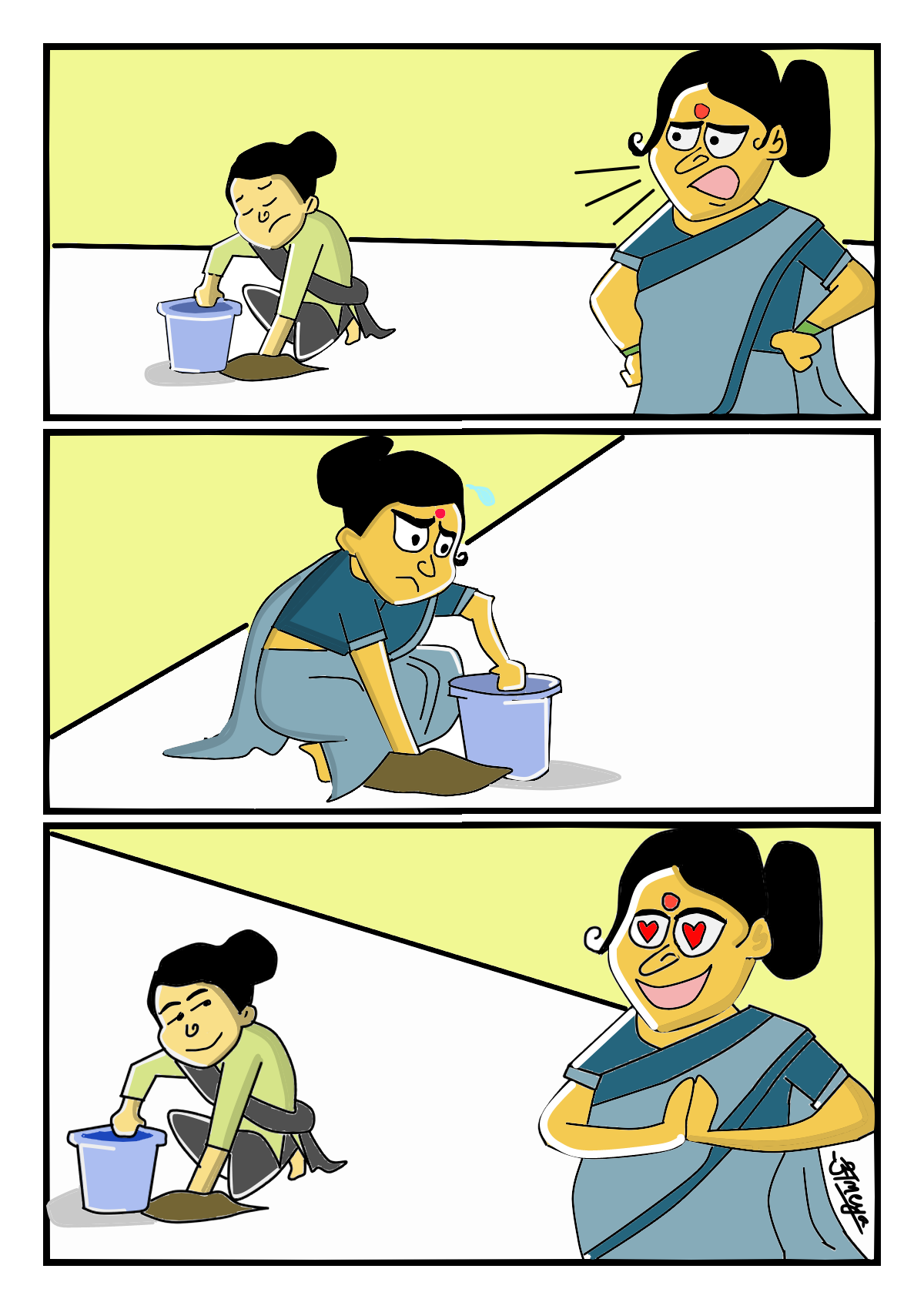September, 2020
Here are some Dos and Do-nots for you to help your help during these trying times
3 minutes read
2020 has been a year of many firsts, some progressive, some devastating but all life-changing. A world that forgot to think of, empathise with and work for the margins has had the beautifully curated picture of urban and modern altruism thrown back at its face. Our world has learned to respect its blue-collared workers. It has quickly realized that it is them that are most deserving of their place under the ‘essential workers’ umbrella.
In India, an economically polarized society has begun to acknowledge the importance of its domestic workers, an increasingly feminized sector. Having been nearly at the bottom of the socio-economic pyramid for centuries, our domestic care workers have fought valiantly to realize their rights since the 1980s. This movement has spanned across the Indian geography, society, and government but with a frankly unimpressive response to show for it. Why? Well, governments rarely interfere in matters behind private doors. Second, a toxic mixture of caste, class, religion, and gender bias has largely pushed back on all these efforts.
This is only a superficial representation of the issue at the core, which is that because domestic workers are considered ‘part of the family’, they are (mis) treated as per the whims and fancies of the employer.
In fact, experts often call it a matter stuck between a range of labour issues and women’s issues. Hence, the solutions that accommodate all of these complexities are few and far between without a proactive common society. So it occurred during the Covid-19 crisis. Many employers refused to pay full/part wages to support their domestic workers at a time when the economy was at a standstill and medical security was paramount, and by extension, personal hygiene expenditure rose exponentially. Very few were financially and materially supportive.
But guess what? ALL of them missed their domestic help. A nearly four-month-long national lockdown had left households to do their own chores. They comically, grudgingly and we’ll give them, humbly discovered the real value of the domestic workers’ labour. Will this immensely important moment in history really lead to a ‘new normal’ for our domestic workers? It might, if you follow our checklist!

Dos:
- Say Thank You:
It’s really quite simple. All you have to do is rehire your domestic help, once conditions in your residential area are right and if they are willing to return to work. While you’re at it, look up the prevalent minimum wage rates in your state and make sure you pay not a rupee below that! Above that threshold, feel free to pay as well as you possibly can. Times are hard, so offer them a snack or a drink whenever you can.
- Bad times, goodwill:
We know money might be tight for you, but it’s most likely even tighter for them. Please try to allow advances and loans, the goodwill will last you forever. Also, leverage your networks for financial, medical and legal assistance for your domestic help! What use is a network if it provides no support in crisis?
- Be pushy for change:
You’re thinking, “Now I know why I could pursue my passions, enjoy a good board game with my family and still have time to fit in a workout!” Good, gratefulness is good. But so is action. You must lobby with your RWA to follow minimum wages, decorum and manners and to build public rest/toilet spaces for domestic workers to use. Raise your voice when local governments make post-Covid rules for this sector and make sure they’re fair and do not burden the workers. Take it upon yourself to save them from harassment!
- Get to know them:
Research has regularly shown that most domestic workers, especially women, have little time to socialise or ask for support. They’re weighed down by responsibilities and problems, yes, but also by social invisibility. It’ll take you hardly ten minutes a day to have a real conversation with them and to listen without judgment. However, the companionship will do for them what it does for us all— make us feel human. A better investment of time compared to small talk with nosy relatives, no?
Don’ts:
- Fire them!
Duh. You desperately need them, and to keep the economy moving, they’re crucial. Hence proven.
- Be Uncle Scrooge:
It’s a pretty common mentality for consumers to bargain, but this behaviour hardly penetrates the formal economy. Then why is it such a coveted skill when it comes to dealing with informal workers, especially when they need/ deserve a fat paycheck for the kind of back-breaking work they do? Do not take more than you give and instead, save your inner thrift for inconsequential expenses that burn a hole through your pockets!
- Create a superiority bubble:
This really doesn’t need teaching or hammering. While the world debates left versus right, capitalism against socialism, and innumerable other ‘opposite’ words, the bottom line is the homo sapiens species. We’re all born equally human and if nothing else, you should feel absolutely inspired at the domestic workers’ work ethic, grit, and resilience! And no caste, gender, class, or religious affiliation should take that away from them.
- Exploit, abuse, harass:
Sexual, verbal, physical abuse is absolutely unacceptable. In no form, shape, context, or universe can such behaviour develop positive connotations. End of discussion.
This checklist probably brings you a good laugh and some food for thought, but we really hope you pay heed to it and think deeply about it in your ‘new normal’. It can change your life and your philosophies. More importantly, though, it can free those that are jailed within the margins of our society. Today, it’s the time to #RespectYourHouseHelp.
References
- Remote interviews conducted by Women’s Identity and Progress

Leave A Comment